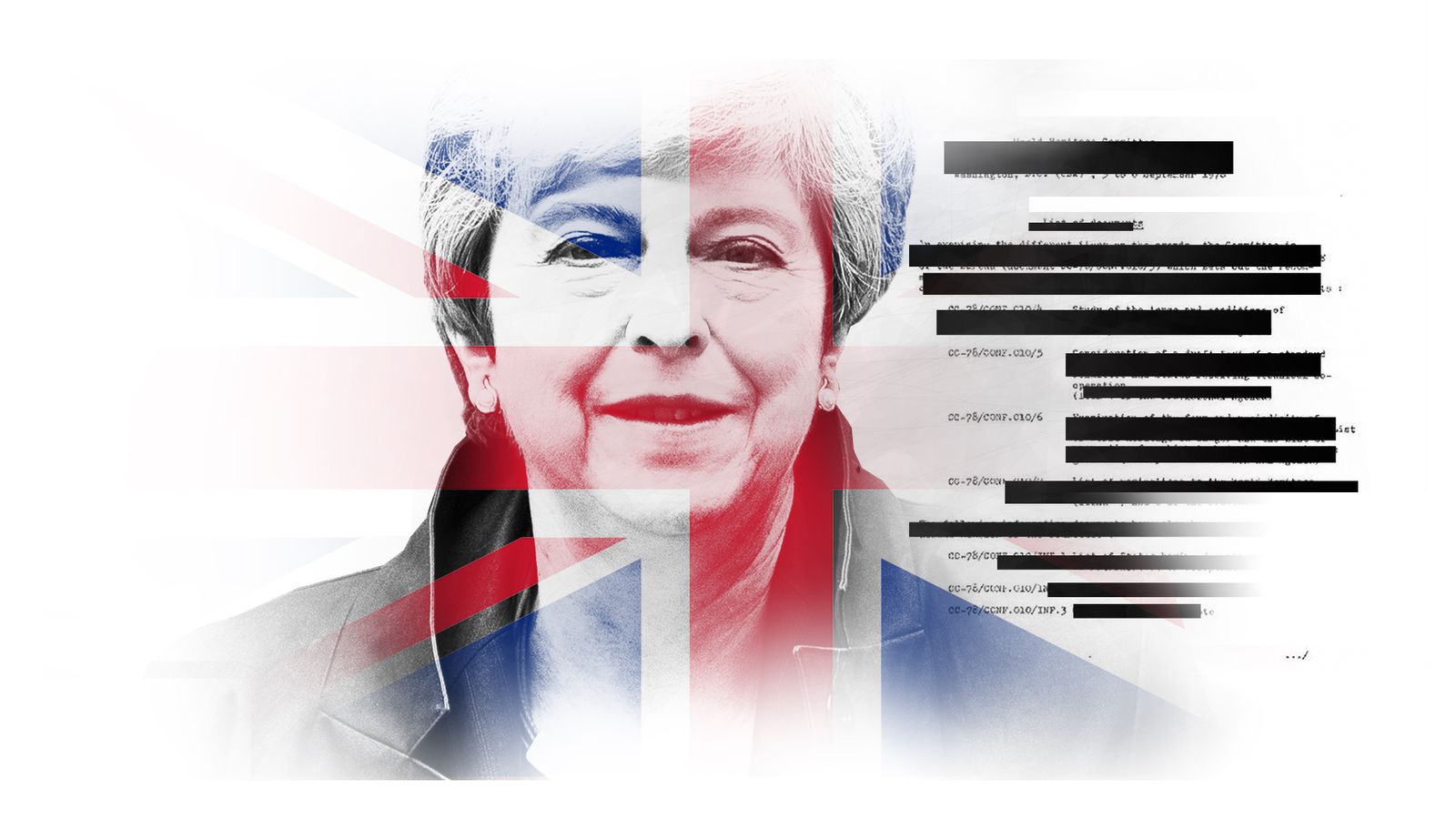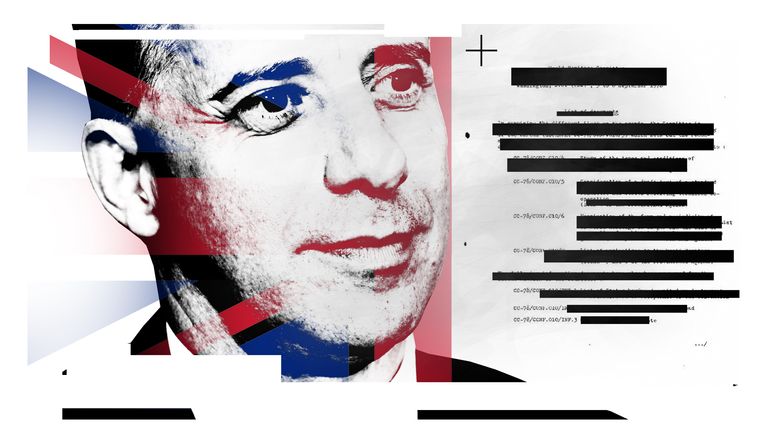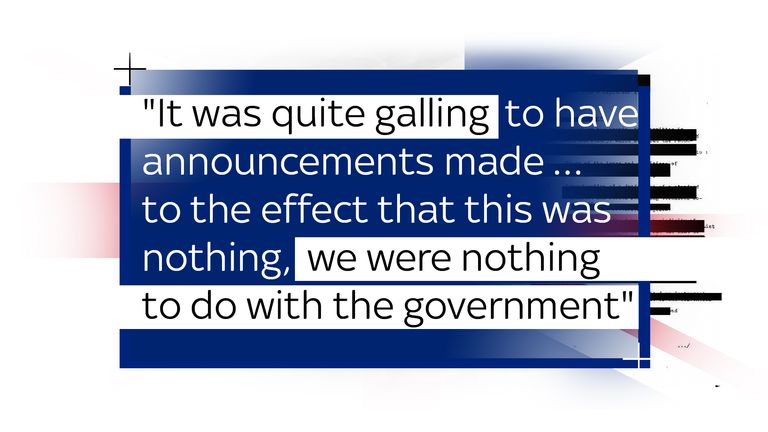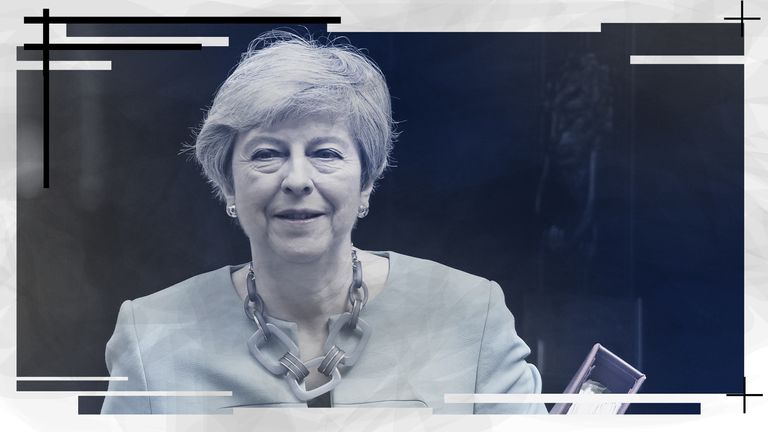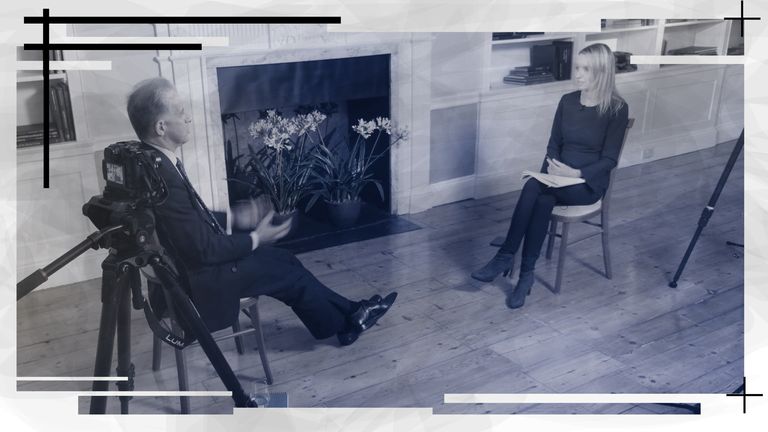A former British spy who wrote a dossier on Donald Trump said he once spent hours with then home secretary Theresa May, briefing her on the Russia threat.
Christopher Steele also revealed he had been asked by a UK official to review sensitive government documents on Russia just days before his dossier, which alleged collusion between the Trump campaign and Moscow in the 2016 US election, became public.
It meant he was left feeling “surprised and disappointed”, he said, when Mrs May, as prime minister, then appeared to play down his links to the government.
“It was quite galling to have announcements made… to the effect that this was nothing, we were nothing to do with the government, we hadn’t worked with or for the government for years and so on,” the former senior MI6 officer said in an exclusive Sky News interview.
He was referring to remarks by Mrs May in January 2017 after the dosser ignited a political firestorm in the United States, drawing furious denials from then president-elect Trump.
“It is absolutely clear that the individual who produced this dossier has not worked for the UK government for years,” she said at the time.
Yet Mr Steele said staff from Whitehall’s Joint Intelligence Committee had been sitting in his office about 10 days before news of the dossier broke because of the unrelated request for him to review “highly sensitive government papers on Russia”.
He also said that Mrs May would have known who he was because he had met her with his business partner, Christopher Burrows, another former intelligence officer, at the house of a mutual friend back in 2010 when she had just become home secretary.
The friend had suggested, “that we should get together and talk about some of these issues so that she got off to a good start and understood the sort of playbook and MO (modus operandi) of some of these Russian actors,” Mr Steele said.
As for what they discussed, Mr Steele said: “There wasn’t really a lot of evidence of electoral meddling as such in 2010. But what we did say is that when you look at Russia, you can’t just take organised crime, oligarchs, government separately. You have to see them as a sort of plasma cloud that is linked in together and they are all operating with each other and for each other. And it’s a diffuse threat.”
In late 2016, before it became public, Mr Steele said he shared his work, investigating possible links between the Kremlin and Mr Trump, with senior British officials out of concern about what his sources were claiming.
He said he thought security officials had handled it correctly but he was not so sure about government ministers, noting how the focus had understandably been on delivering Brexit and adjusting to the unpredictability of an incoming Trump presidency.
“The overall impression I had was that this was a problem they didn’t want to face up to,” he said.
A spokesperson for former prime minister Mrs May did not respond to a request for a comment.
Lord Mark Sedwill, who was her national security adviser, pushed back on Mr Steele’s assertion.
“Just because people outside government can’t necessarily see action, particularly when it relates to matters of intelligence and security, they shouldn’t assume that the action isn’t happening and it isn’t being dealt with seriously,” he said in an interview.
“Now, of course, the British government, as both Theresa May and Boris Johnson have said, has to have a good relationship with the president of the United States, whoever that is.
“But because he didn’t see action at the time that he was hoping to see does not mean it wasn’t taken seriously and any allegation of that kind is, of course, investigated properly and professionally.”
